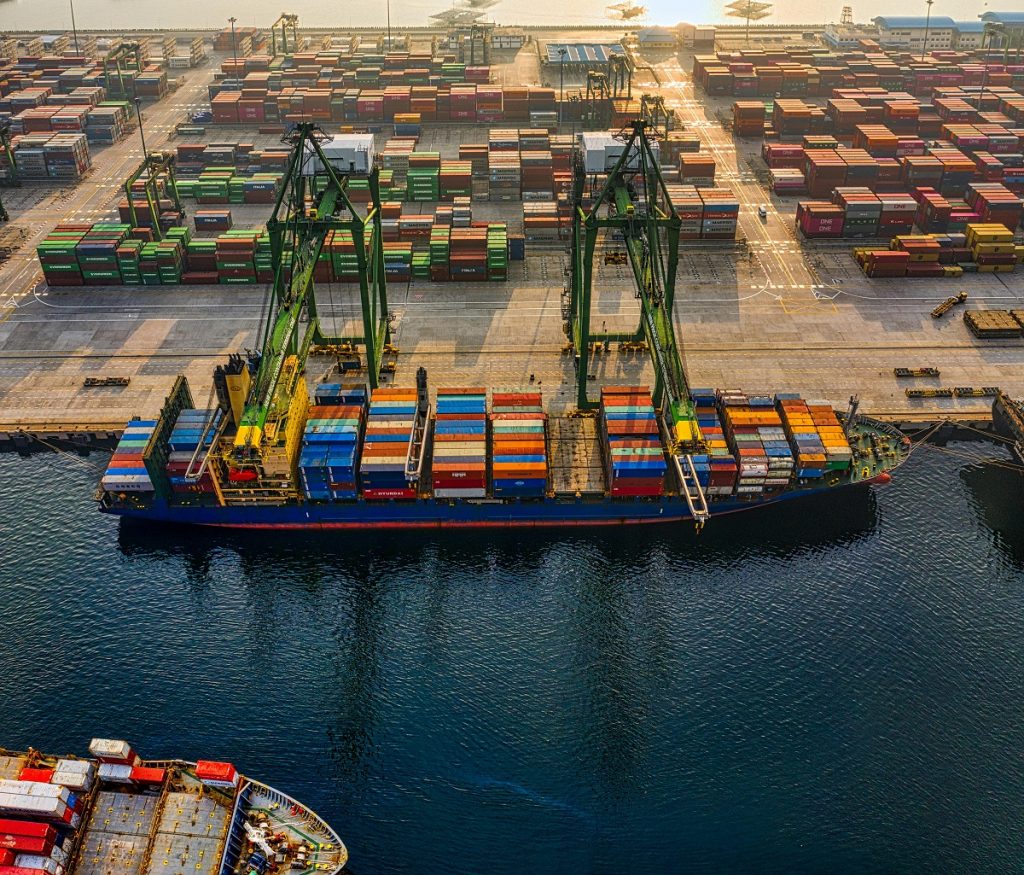
- Warehouse automation, including AS/RS and AGVs, enhances efficiency, reduces errors, and promotes sustainability in logistics operations.
- Blockchain technology increases supply chain transparency and trust by providing secure, traceable digital ledgers for transactions.
- IoT technology revolutionizes logistics with real-time tracking, inventory management, and route optimization for improved efficiency and precision.
- AI impacts logistics through predictive analytics, autonomous delivery vehicles, customer service chatbots, and predictive maintenance for equipment.
In today’s fast-paced world, the logistics industry is constantly evolving to meet the demands of consumers and businesses alike. With the rise of e-commerce and global trade, companies are seeking innovative ways to streamline their supply chains and improve efficiency.
This blog will explore technology and trends that are reshaping the logistics landscape. From artificial intelligence to blockchain, these advancements are revolutionizing the way goods are transported, stored, and delivered.
Advanced Warehouse Equipment
Technological advancements in warehouse equipment, such as automated storage and retrieval systems (AS/RS) and autonomous guided vehicles (AGVs), have greatly improved efficiency and accuracy in warehouse operations. These machines can handle a wide range of tasks with speed and precision, reducing the risk of human error and increasing productivity.
Additionally, modern warehouse transportation equipment, such as an electric walkie pallet jack, can navigate narrow aisles and reduce manual labor, further streamlining the supply chain process. This type of pallet jack is also environmentally friendly, emitting zero emissions and reducing the carbon footprint of warehouse operations.
Blockchain Technology
Blockchain technology is also playing a key role in reshaping the logistics landscape. By creating secure and transparent digital ledgers, blockchain enables greater visibility and traceability throughout the supply chain. This not only reduces fraud but also enhances trust among stakeholders.
For example, companies can use blockchain to track products from manufacturer to consumer, ensuring authenticity and quality control. This level of transparency is crucial in an increasingly globalized market where consumers demand accountability from companies.
The Internet of Things (IoT)
The Internet of Things (IoT) is another technology that is revolutionizing logistics operations. Logistics companies worldwide are using IoT to track shipments, monitor inventory levels, and optimize routes for delivery. For example, Singapore’s logistics companies are using IoT sensors to track temperature-controlled shipments and ensure that they remain within the required range.
This has helped the country become one of the leaders in pharmaceutical logistics, with companies like DHL and UPS investing heavily in IoT technology to ensure the safe and efficient delivery of temperature-sensitive medications. This level of precision in tracking and controlling shipments would not have been possible without the use of IoT.
3D Printing
3D printing is a disruptive technology that has the potential to revolutionize traditional manufacturing processes in logistics. By enabling on-demand production of customized parts or products locally, 3D printing reduces lead times and transportation costs associated with traditional manufacturing methods. This decentralized approach to production opens up new opportunities for just-in-time manufacturing and personalized goods tailored to individual customer needs.
Artificial Intelligence (AI)
One of the most impactful technologies shaping the logistics industry is artificial intelligence (AI). It has many applications in logistics. Here are four ways AI is reshaping the landscape:
Predictive Analytics
Using historical data and machine learning algorithms, AI can predict demand and optimize inventory levels, leading to more efficient use of warehouse space and reduced costs. It can also forecast transportation delays, helping companies plan for potential disruptions in the supply chain.
Autonomous Vehicles
AI-powered autonomous vehicles like drones and self-driving trucks have the potential to transform last-mile delivery, reducing human error and labor costs. These vehicles can operate 24/7 and navigate through traffic more efficiently, resulting in faster and more reliable deliveries.
Chatbots and Virtual Assistants
Chatbots and virtual assistants equipped with natural language processing (NLP) capabilities can handle customer inquiries, track shipments, and provide real-time updates on delivery status. This improves the overall customer experience while freeing up human resources to focus on more complex tasks.
Predictive Maintenance
AI can analyze data from sensors embedded in equipment to predict when maintenance is needed, reducing downtime and saving costs on unnecessary repairs. This technology enables companies to shift from reactive to proactive maintenance, leading to more efficient operations.
By leveraging the power of AI, logistics companies can gain a competitive edge by improving efficiency and customer service while reducing costs. As AI continues to evolve, we can expect to see further advancements in the logistics industry, such as enhanced route optimization, improved supply chain visibility, and increased automation in warehouses.
The integration of technology into the logistics industry is not just reshaping the landscape; it’s revolutionizing it. From streamlining warehouse operations to enhancing the customer experience, these technological advancements offer unprecedented levels of efficiency and reliability. Given the rapid pace of technological advancements, the logistics landscape of tomorrow will undoubtedly be vastly different but infinitely more efficient and agile.


